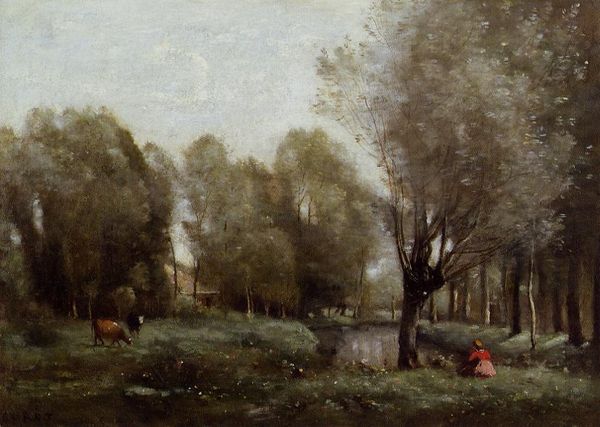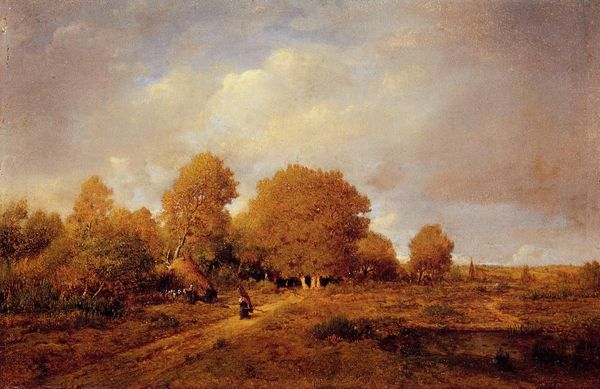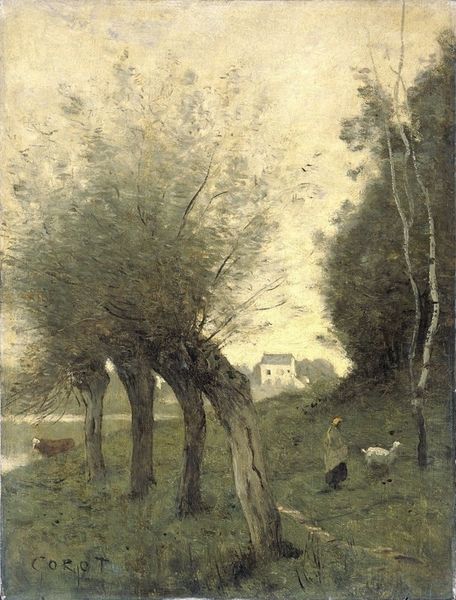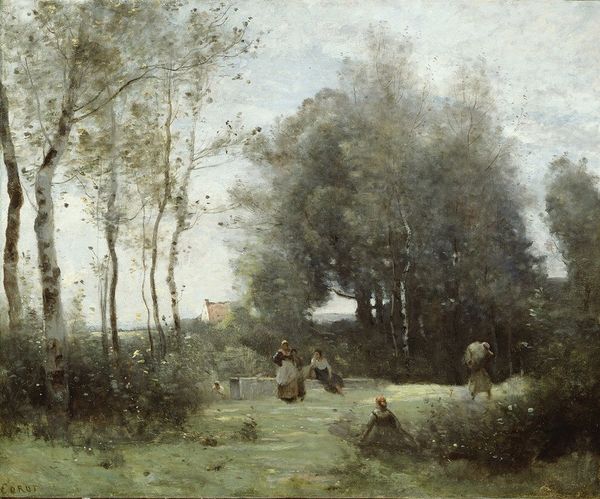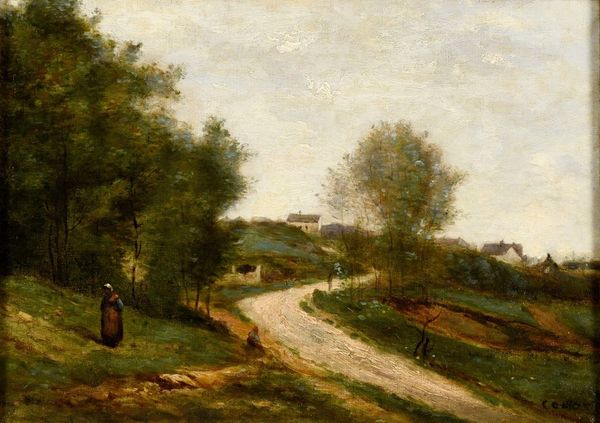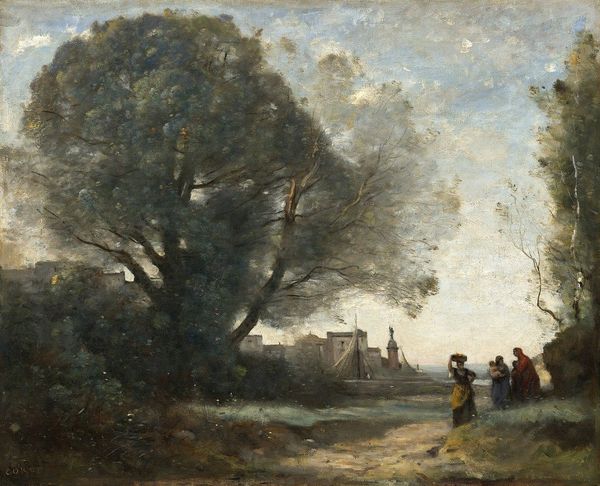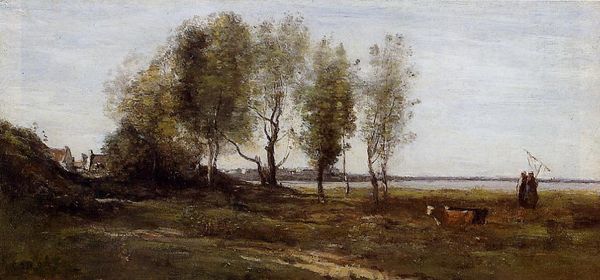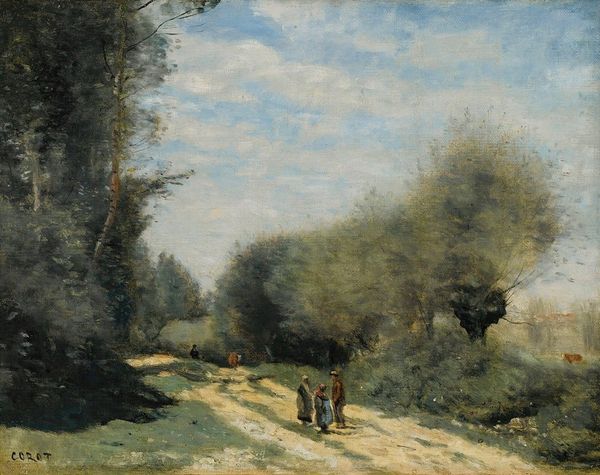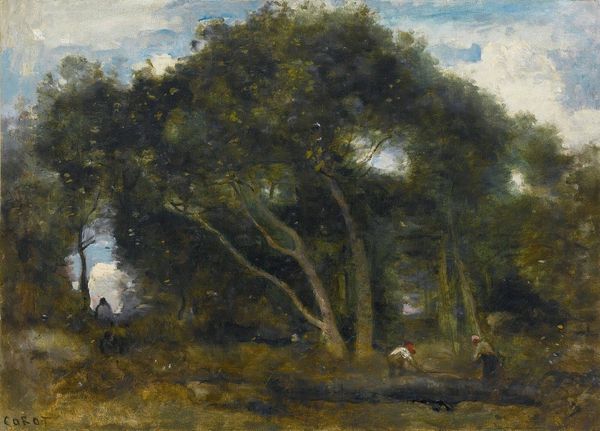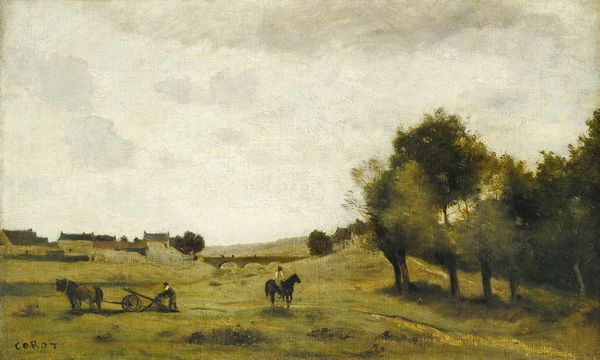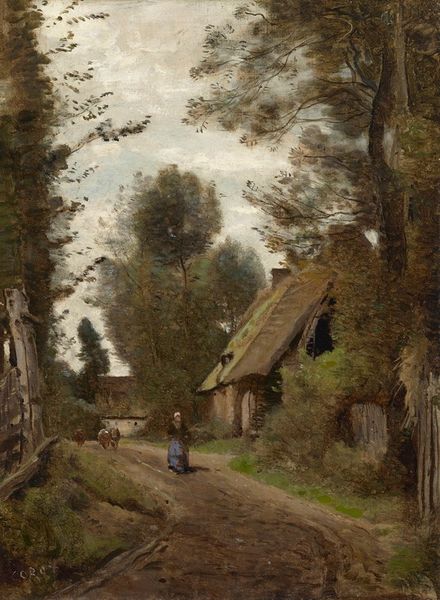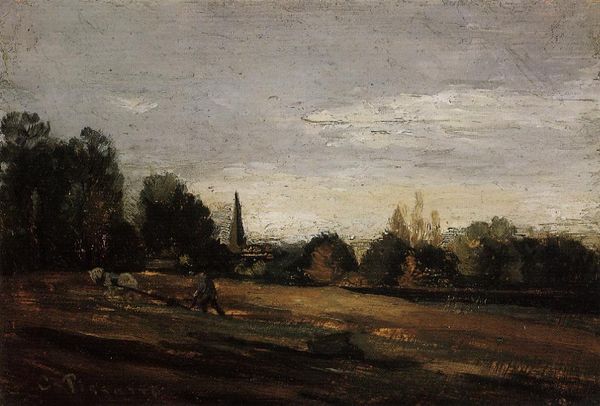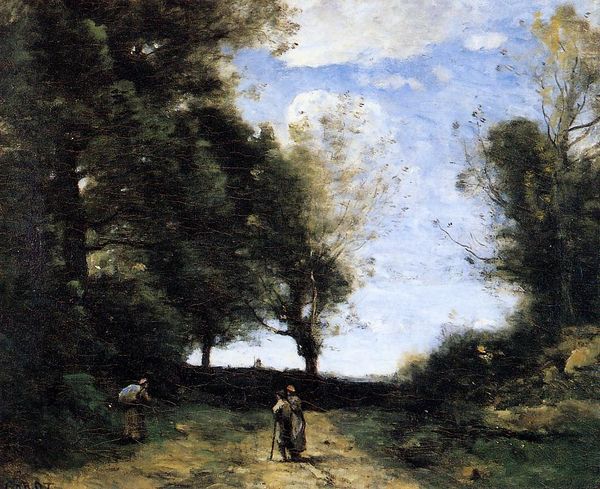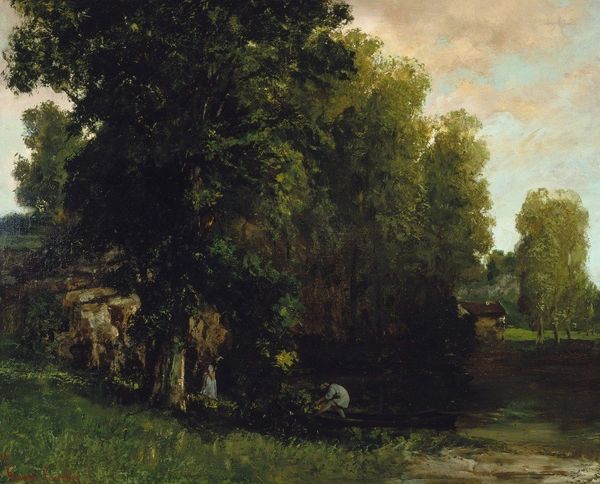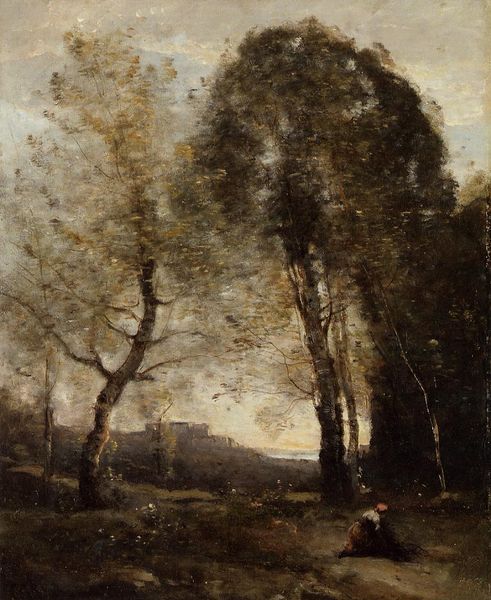
#
tree
#
garden
#
abstract painting
#
countryside
#
rural
#
impressionist landscape
#
possibly oil pastel
#
nature
#
oil painting
#
acrylic on canvas
#
plant
#
park
#
scenic spot
#
watercolor
Copyright: Public domain
Editor: "Fervaques, Garden and House of Monsieur Jacuette," painted in 1877 by Eugène Boudin... it has a lovely, serene feeling. What strikes me is how the house is almost swallowed by the surrounding nature, like it's meant to be there. What can you tell me about this painting? Curator: Boudin, often associated with the Impressionists, was keenly interested in depicting modern life. Now, while this scene appears idyllic and removed, consider the historical context. This painting was created during a period of immense social and economic upheaval in France. Does this rural setting suggest an escape, a longing for a simpler past, perhaps? Editor: That's interesting, I hadn’t thought about it that way. It’s easy to just see a pretty picture. Is it commenting on urbanization then? Curator: Perhaps implicitly. Think about the emerging industrial landscape and the rapidly changing social structures. Boudin frequently painted scenes of leisure, particularly along the coast. By focusing on a private garden, might he be hinting at the increasing privatization of land and the growing divide between rural and urban experiences? And notice the brushwork—how does that play into the scene? Editor: It feels…loose. Not as polished, definitely more about capturing a feeling. Curator: Exactly. This emphasis on capturing fleeting impressions also reflects the shifting values of the time. Art was moving away from academic realism towards a more subjective experience. We must examine it in context. Editor: That’s given me so much to think about – it is definitely much more complex when we start digging into the historical side of things. Curator: Indeed. Art is rarely just "pretty." It's a mirror reflecting societal shifts, power dynamics, and the anxieties of its time. Examining art historically transforms a pleasant view into a valuable historical document.
Comments
No comments
Be the first to comment and join the conversation on the ultimate creative platform.
